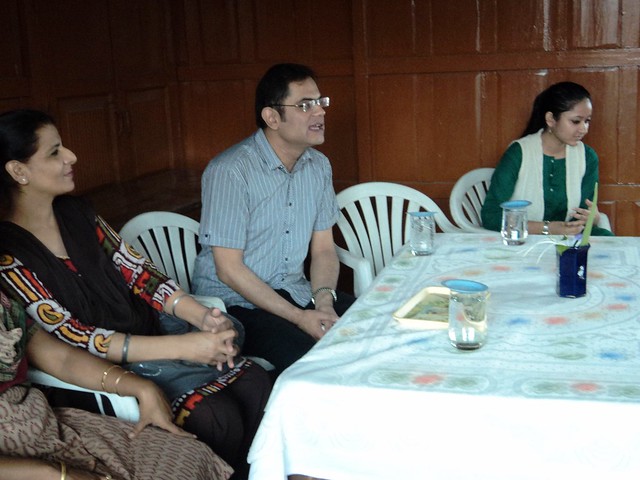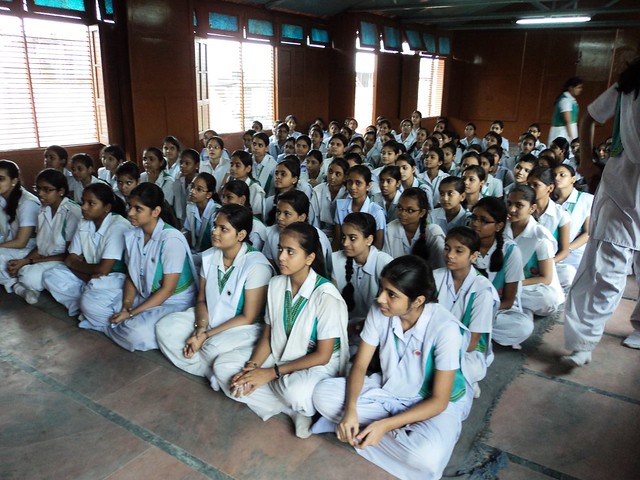Third Aman Chaupal Organised At Indraprastha School With Raza Rumi.
By TCN News,
New Delhi: Amidst rising tension between India and Pakistan over the death of four soliders at LoC, Aaghaz-e-Dosti (an initiative for Indo-Pak friendship, started by Mission Bhartiyam) organized its third Aman Chaupal today on 8 August 2013 at Indraprastha Hindu Girls’ Senior Secondary School in New Delhi.
Aman Chaupal is an informal session wherein people from Pakistan or who have been to Pakistan share their experiences and address students’ curiosities and questions. The objective of this initiative is to bridge the communication gap that guides Indo-Pak relations and that gives way to stereotypes and mutual hatred and suspicion. This is the third Aman Chaupal. The first and the second were done with peace activist from Pakistan Saeeda Diep at Columbia Foundation School and South Asian University.

In this Aman Chaupal, Raza Rumi was the guest. Raza Rumi is a senior Pakistani journalist and currently affiliated with Jinnah Institute, a public policy think tank located in Islamabad. He is associated with reputed newspapers like The News, Express Tribune and Friday times and has also worked in the United Nations. He has recently authored a book “Delhi by heart: Impressions of a Pakistani Traveller” and was in India for its launch.
Raza Rumi had addressed an excited group from classes 9th-12th. Originally a session for 30 minutes, it was happily extended to more than an hour as the questions wouldn’t end. There were questions on the recent ceasefire violations, on the fate of fishermen on both sides of the border, the poor state of jails, on the terror groups in Pakistan, on Malala, on the role of China and the status of women and minorities.
The fact of women constituting 50% seats in the Pakistan Government had earned loud claps.
As on minorities, they were informed that the religious minority is very small in Pakistan, as compared to India but they have privileges like quota in schools and colleges. But unfortunately, there are extremist groups because of whom, they do face hardships.
There were many questions in and around the history of India and Pakistan and the separation.
“But when India and Pakistan know that it was the British who had created rifts for their own interests, why are they still fighting?”, inquired a student.

The children had also inquired about people on the other side – how are they and what do they think about India. They were informed that the children on both sides of the border look the same, speak the same language and have the same routine of school and then play. But more importantly, People on both sides share not only the same culture, language, religious beliefs and challenges, they also share the same desire for peace.
One of the last questions was “All countries do terrorism then why is only Pakistan called a terrorist country?”
The teachers were also very encouraging towards the initiative. One of them remarked, “They learnt more than they could learn from the books. We teach them these things but if someone from Pakistan comes and tells them, it is always more convincing.”
The event organisers were Devika Mittal who is the convener of Devika Mittal and Madhulika Narasimhan, a passout of South Asian University. The co-ordinator from the school was Ms. Jigyasa Gupta.

